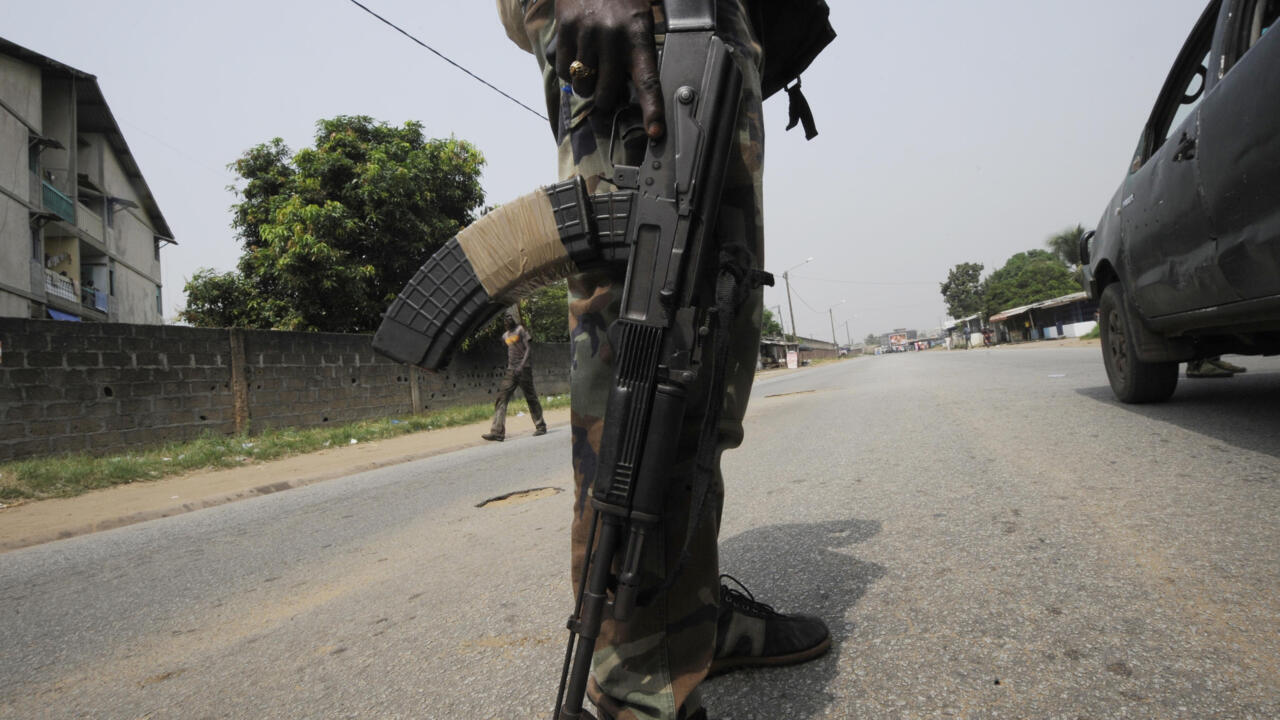Ivorian soldiers detained in Mali: new turning point in the crisis between Bamako and Abidjan
An Ivorian soldier in the district of Yopougon (illustrative image) AFP PHOTO/ SIA KAMBOU
Text by: David Baché
2 mins
The two countries took a new step this weekend in the showdown that has pitted them since July 10.
The Malian transitional president, Colonel Assimi Goïta, declared on Friday evening that the 46 Ivorian soldiers still detained in Bamako would not be released until Abidjan delivered the Malian political figures in exile to Côte d'Ivoire.
Abidjan did not react officially, but a senior official close to the Ivorian presidency spoke to RFI of "hostage taking".
How to understand this new turning point and the new questions it raises?
Advertising
Read more
They do not hide their perplexity.
Several sources close to the discussions tell RFI that the Malian transitional president, Colonel Assimi Goïta, had recently agreed to no longer demand the extradition of Malian politicians present in Côte d'Ivoire, in exchange for the release of Ivorian soldiers detained in mali.
“
Assimi Goita was sincere,
assures one of these sources, who does not belong to the Malian part or the Ivorian part,
but he is not the only one to choose.
“According to this source, relatives of the Malian president – we will not know who precisely – would target the Ivorian president Alassane Ouattara: “
they are convinced that he is playing the game of Paris, which wants their loss.
The fact remains that
by publicly assuming,
for the first time, this requirement, the Malian president seems to make it irrevocable.
Was this volte-face premeditated?
What is the desired objective?
Daring gamble to obtain this extradition, or desire to light the fuse with Abidjan?
Several well-informed interlocutors recall the “
usual strategy
” of the transitional authorities: exalting national pride and focusing attention on one file in order to take care of the others more calmly.
►
To read also: Ivorian soldiers detained in Mali: Abidjan denounces a "hostage taking"
Still, the game is risky for the Malians of Côte d'Ivoire - there are three million - and for the Malian economy closely linked to the Ivorian neighbor, with trade in goods and electricity in particular.
The interlocutors contacted by RFI do not believe in a war escalation, but all wonder how far the conflict will go.
“
A work of peace is never easy,
concludes a last source involved in the ongoing mediations,
but nothing is impossible, we will get there.
Togo, the United Nations, ECOWAS and the African Union are involved in ongoing mediation attempts to find a peaceful solution to this crisis.
According to information from RFI, a National Security Council should be held at the beginning of the week in Abidjan.
Requested by RFI, the Malian presidency, for its part, did not follow up.
►
To read also: Mali-Côte d'Ivoire: what blocks for the 46 soldiers still detained
In the current context, I see very little of Côte d'Ivoire handing over "opponents" to the transitional authorities in Mali.
It would be a precedent.
And secondly, I think that Côte d'Ivoire would not want to give the image of a country that gives in to blackmail.
Serigne Bamba Gaye, political scientist
Clementine Pawlotsky
Newsletter
Receive all the international news directly in your mailbox
I subscribe
Follow all the international news by downloading the RFI application
mali
Ivory Coast

